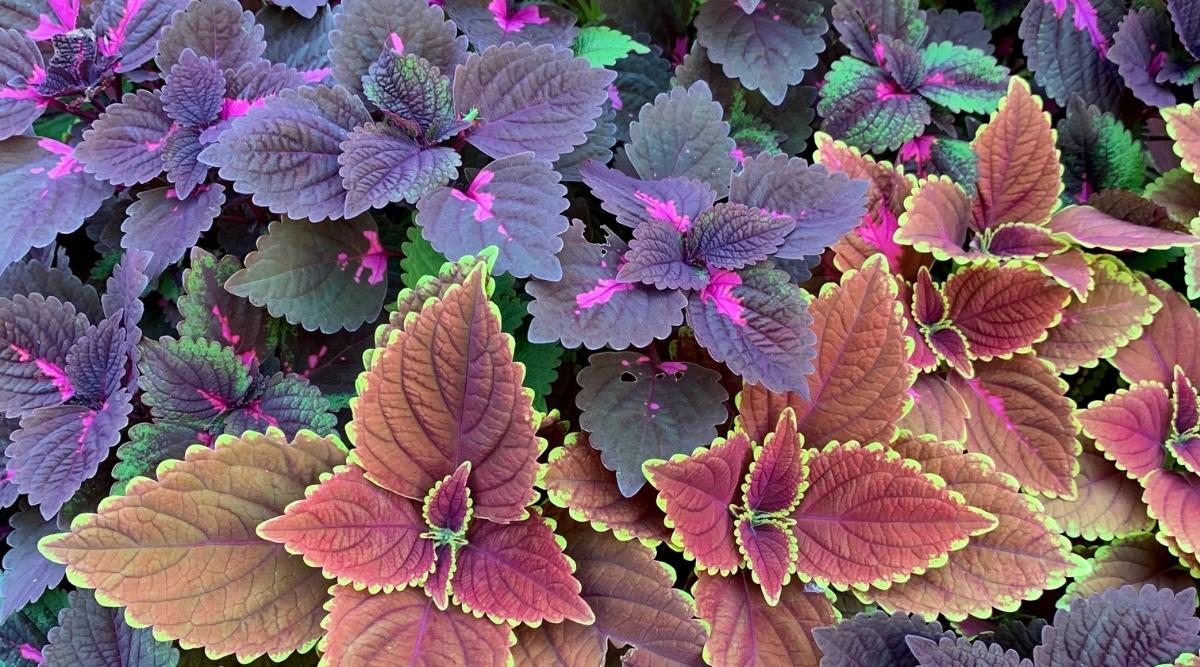Coleus is an easy-to-care-for plant with brightly colored leaves. It is usually grown as an annual in beds or pots in all USDA zones, but in zones 10 and 11, it can be grown as a perennial.
If you’ve ever thought whether or not deer like Coleus, the answer is usually no. Coleus isn’t harmful to most animals, so deer and other animals don’t usually eat it. Even so, if the conditions are right, deer and other wild animals will eat almost any plant.

When looking for information about coleus, yearly sellers often say that certain kinds of coleus are deer resistant. It is a little bit toxic, and deer don’t like the way they taste. But when I talk to real farmers who live in places where deer are common, they tell me that yes, deer will eat my coleus to the ground.
So deer don’t eat coleus because it tastes good or looks appealing? Then why do farmers say it gets eaten? When deer are eating your coleus, it doesn’t help me to say, “It’s deer resistant, case closed.” Let’s learn more about deer and why they might choose to eat a plant that isn’t very tasty.
If you live in a place where deer aren’t common, you don’t have to worry about your coleus plant or the border of your garden’s greenery plants bringing deer from other places. So, the answer is no, coleus doesn’t bring deer into gardens. They usually stay away from this plant.
But tell the gardener whose coleus was eaten by a deer that deer don’t like it. It’s not that easy. Yes, your coleus could be in danger if you live in an area where deer are popular and they get into your garden. Not always, though. It will depend on a number of things.
Since deer don’t eat coleus very often, there isn’t much information about how deer hurt coleus plants. But there are a few signs that show if deer are to blame for the damage to your coleus plants.
Deer don’t have upper teeth, so they have to tear leaves apart to eat. Deer have definitely been in your yard if the leaves are torn or the stalks are not even.
Most people know that male deer rub their horns against trees. If you see vertical scrapes and shredded bark on your trees, it means that deer have been grazing on your land and may have eaten something from your yard.
Two to three inches long, deer tracks look like a broken heart. If you see these tracks in and around your yard, it’s possible that deer are hurting your plants.
If you really want to know what was in your yard, look for animal droppings. The droppings of deer look like the droppings of rabbits, except that they are often stuck together.
If you want to put coleus plants outside but find that deer in your area like to eat them, there are a few things you can do. Even though none of these things will stop deer for sure, they will help keep them from eating your garden.
Deterrent sprays: Most garden shops sell sprays that keep deer away from your plants. Most of the time, it’s made from oils that deer hate, like castor oil, and they’re easy to use. The only bad thing is that if it rains, you’ll have to spray it again.
Automatic sprinklers: Another good idea is to put a water sprinkler with a sensor near your coleus plants in your yard. When hungry deer come close, it will spray enough water to scare them away and keep your plants healthy.
Traditional deterrents: Try oregano or chives, or make a spray with garlic, jalapeo, and other strong-smelling ingredients. Also, Irish Spring soap smells bad to deer, so you can use shavings to keep them out of your yard.
If deer or other animals eat all of the leaves, the coleus probably won’t come back. The plant needs its leaves to do photosynthesis and store energy for the following year. Without leaves, the plant might not be able to grow back. If there are still leaves on the Coleus, it might grow back.
Now for the hazy answer to the question, “Will deer eat my coleus?” Well, maybe, but most likely not. They might, though. Sorry, that wasn’t the answer you wanted. Here’s the deal: If you have a valuable coleus plant and want to put it outside but you have a lot of deer in your yard, you might want to test the waters first.
Put out a decoy coleus and watch to see if they eat it. If they don’t, that’s great, and you’re probably safe. If your coleus is a prized plant, you might want to keep it out of reach. But if you just want to add some coleus to your yard, give it a try and see how it goes.
Gardening is just a big game of try and see what happens. If deer do devour your coleus, it’s time to apply some deer deterring strategies. In the next part, I’ll give you some ideas for how to deal with the cute but dangerous creatures.
The leaves of a coleus plant are needed for photosynthesis and to store energy for the next year. If coleus loses its leaves, it probably won’t grow back. So, if deer or any other animal eats the leaves of a coleus plant, it won’t be able to keep growing.
Coleus, on the other hand, is easy to spread. If you are worried that deer will eat your coleus plants, you can protect them by putting a leaf cutting in water and then planting the cuttings that have grown roots.
Compared to other trees, coleus does stand up to deer. Because coleus is only mildly poisonous, deer don’t like it and rarely eat it. Simply put, deer don’t like the look of coleus leaves.